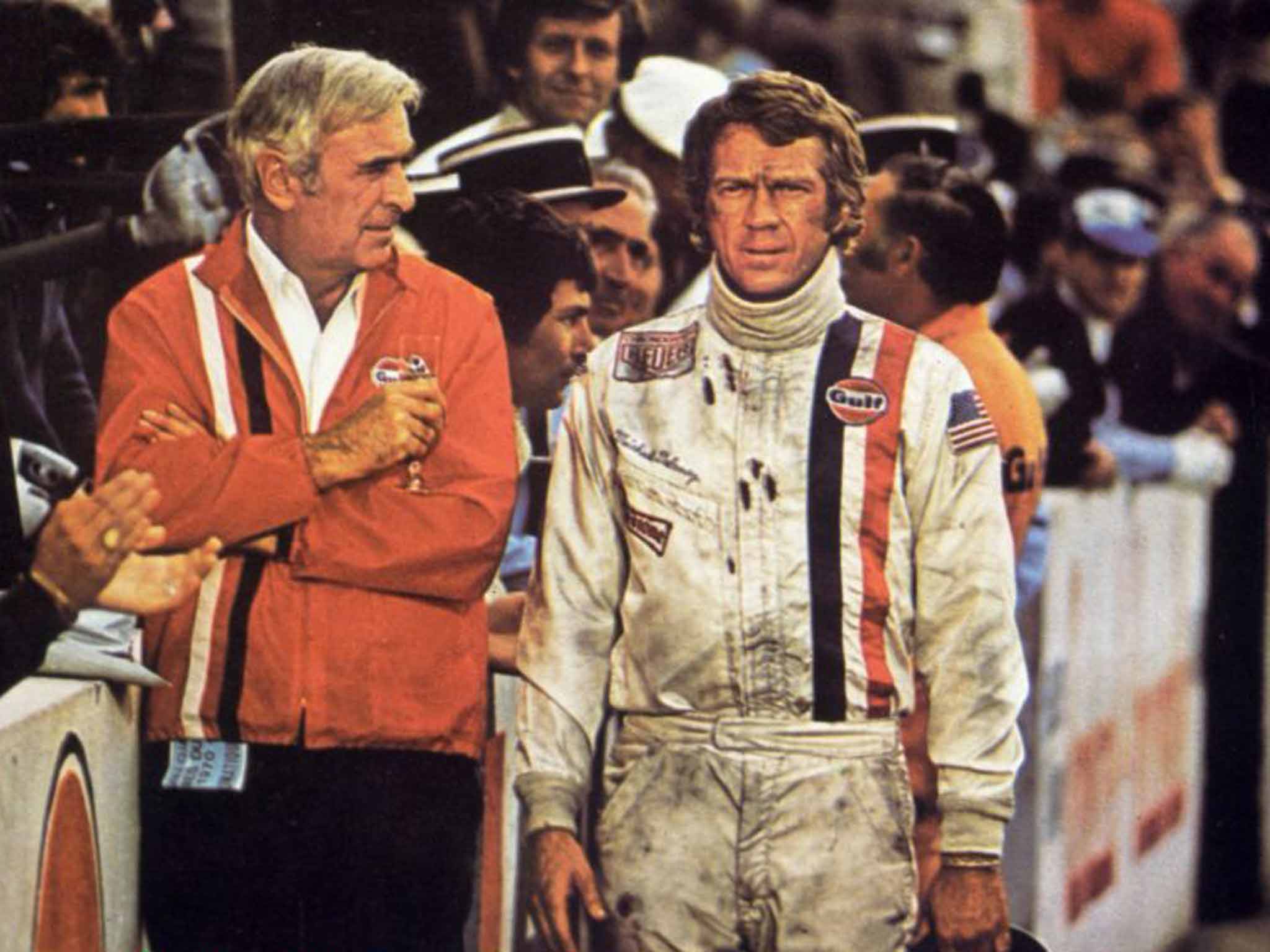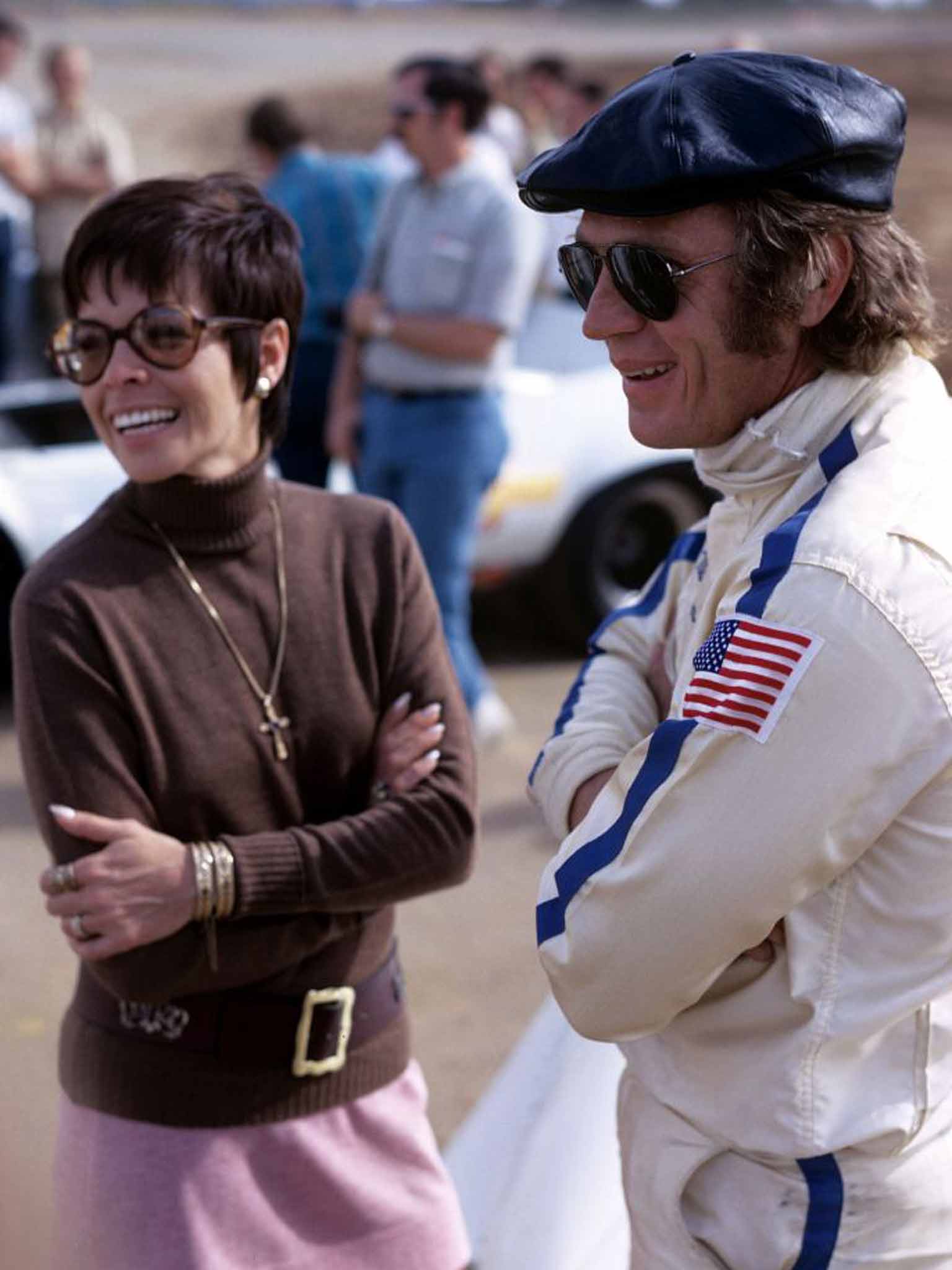Steve McQueen's 'Le Mans' project: New film features remarkable unseen footage and outtakes
Geoffrey Macnab on how Steve McQueen's film 'Le Mans' was the beginning of the end for the King of Cool.

Your support helps us to tell the story
From reproductive rights to climate change to Big Tech, The Independent is on the ground when the story is developing. Whether it's investigating the financials of Elon Musk's pro-Trump PAC or producing our latest documentary, 'The A Word', which shines a light on the American women fighting for reproductive rights, we know how important it is to parse out the facts from the messaging.
At such a critical moment in US history, we need reporters on the ground. Your donation allows us to keep sending journalists to speak to both sides of the story.
The Independent is trusted by Americans across the entire political spectrum. And unlike many other quality news outlets, we choose not to lock Americans out of our reporting and analysis with paywalls. We believe quality journalism should be available to everyone, paid for by those who can afford it.
Your support makes all the difference.Steve McQueen was at his absolute height as a movie star when he began work on his passion project Le Mans (1971). Thanks to a string of successes like Bullitt and The Thomas Crown Affair, he was one of the most powerful figures in Hollywood, able to choose his own projects and set his own terms. Fans revered him as the coolest, most charismatic actor of his generation.
In theory, Le Mans had all the ingredients to be a huge hit. McQueen himself starred in a role tailor-made for him as Michael Delaney, the driver in the Porsche in the 24-hour race in Le Mans. However, as a new feature documentary, Steve McQueen: The Man and Le Mans reveals, the project very nearly destroyed him.
The film itself wasn't a success. Its original director, John Sturges (who had also worked with McQueen on The Great Escape), abandoned the project. His marriage came under severe strain – and so did the finances of his production company. His paranoia was mounting. The Sharon Tate murders had happened in LA a few months before filming began. During the course of shooting, McQueen, who had discovered he was on Charles Manson's death list, requested that a gun be sent over for his protection.
"I've always wanted to shoot a motor-racing picture because it has always been something close to my heart. I sometimes thought maybe I shouldn't do it," McQueen is heard saying in the trailer for the documentary, which receives its world premiere in Cannes this weekend. "When something is close to you, you have a tendency to become too much of a perfectionist with it."
That perfectionism was going to cost McQueen dear. The new documentary is directed by Gabriel Clarke and John McKenna. What has been causing huge excitement among motor racing and film fans alike is the wealth of unseen footage that the film-makers have turned up of McQueen's folie de grandeur.
Film-maker and journalist Clarke, well-known to British viewers for his football reporting on ITV, has revealed the extraordinary efforts he and McKenna made to track down the missing footage. It had been claimed that well over a million feet of film were shot by McQueen and his team during the making of Le Mans. There were issues with the storyline and script during production, and as they waited for these to be resolved, the film-makers kept shooting and shooting. They were filming during the actual Le Mans race with multiple cameras – and seemingly with little thought as to how their hours and hours of footage were actually going to be incorporated into the movie.
The out-takes had long since gone missing, presumed lost. Some had speculated that the film-makers themselves may have destroyed the material when the project went sour on them. Even McQueen's own son, Chad McQueen, feared that the footage was lost.
"Some of our footage came from private family collections," Clarke says, talking about the various sources they drew from for the film. "Other footage had been recorded at the time. There was an on-set 'making of' documentary made by one of our contributors, John Klawitter..." They also unearthed a Swiss documentary, The Song of Le Mans, made during the shooting of Le Mans but never released. (This turned up in a Paris film vault.) They also came across several hours of super 8mm home-movie footage shot by one of the drivers, Paul Blancpain, during the race.
Klawitter himself discovered film reels stored away in his own garage. "They had been there for more than 40 years – and thanks to the kindness of California's climate, they had survived the ravages of time."
The real "holy grail", though, was the discovery of out-takes footage. "We spoke to family, to people who had worked on this project. As far as they were concerned, this film didn't exist," Clarke recalls. There was "a vague lead" to a disused warehouse in New Jersey. Some contacts suggested that the rushes might be in private collections in South America. (McQueen memorabilia remains highly sought after there.)
Clarke and McKenna just happened to make a late night call to an editor in Los Angeles. An email came back saying that "hidden beneath a sound stage and covered in dust, we found between 400 and 600 boxes of film." Miraculously, the rushes had survived intact. The first box the film-makers looked at contained material from the camera car. "It was just inspiring to look at," Clarke says. "McQueen wanted a camera car – a car that was racing in Le Mans and from which they could use the footage to put across the authenticity of the driver during the race."

Le Mans was intended by McQueen to be the ultimate racing movie. He wanted viewers to feel they were behind the wheel, experiencing the event at first hand. "Once we knew the rushes existed, we could really put this across."
Some of the Hollywood star's relentless perfectionism was clearly shared by Clarke and McKenna. The rushes came without sound, but the film-makers made sure during post-production that every last growl of an engine was authentic. Whether it was McQueen in a Porsche 917 or another driver in a Ferrari 512, the sound the car makes is exactly as it should be.
The motor-racing community appreciated Le Mans, and the film has been called "essential viewing for anyone with gasoline in their veins." However, box-office returns were disappointing and McQueen himself never quite recaptured the lustre he had once held.
The metaphor that many use to describe McQueen's involvement in such an epic and ill-fated project is of Icarus flying too close to the sun.
"The story itself is so much more than just Steve McQueen, the motor-racing fanatic. The story is this obsession that McQueen had to make the ultimate racing film," says Clarke. "Everyone around him was convinced that he was untouchable and that this was going to be the ultimate film, not just a racing film… with Steve McQueen in a racing car, what could possibly go wrong? Of course, things did go wrong."
"Part of the reason we feel that this is an inspirational story is that you do go into dark places with Steve – and you do realise that his was a flawed character. He was a genius of a man. One of the things we hope to put across is that he was a visionary."
Now, more than 40 years after the film went so wrong, audiences in Cannes will be given at least a glimpse of the film that might have been.
Join our commenting forum
Join thought-provoking conversations, follow other Independent readers and see their replies
Comments